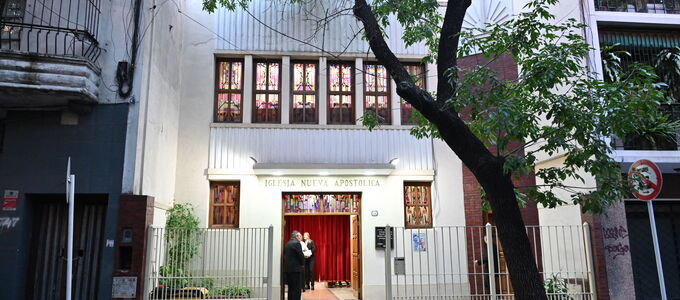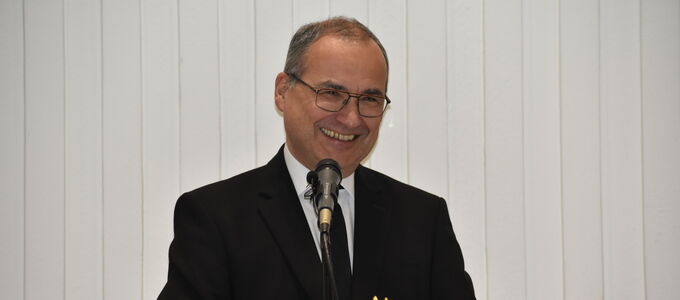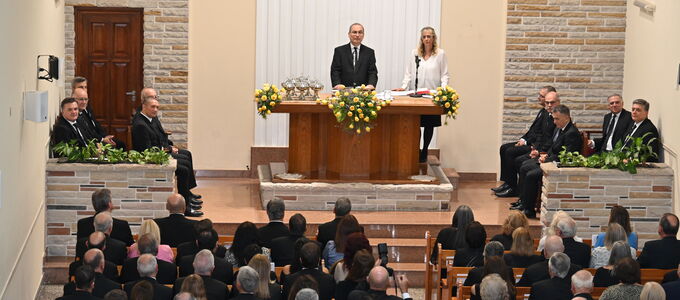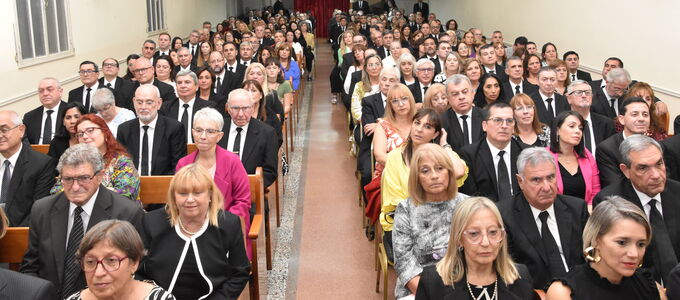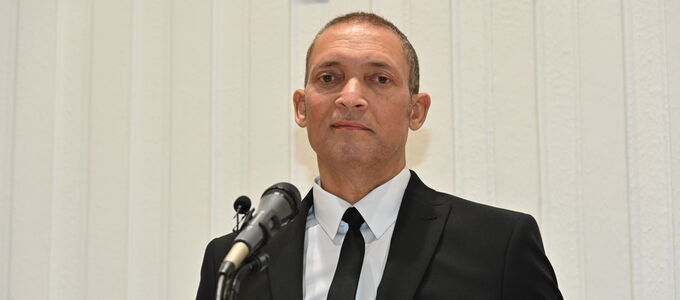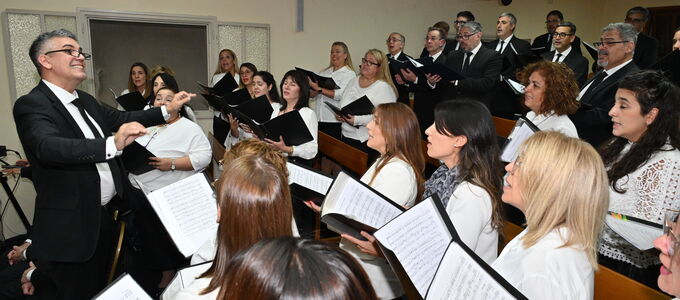“We love because we believe in love”
They both believed and loved, and yet they were very different. The Chief Apostle presented two disciples as role models in a divine service for ministers. But what he said applies to all of us.
Chief Apostle Jean-Luc Schneider began the divine service for ministers in Constitución in Argentina on Friday, 5 April 2024, with a special thank-you to the ministers. He encouraged them in case they ever had the feeling that their work was useless or they were criticised. “It is not nice, but it is not important either. What matters to us is the opinion of Jesus Christ. And He will bless all the work that is done out of faith and in love.”
A net full of fish that will not tear
He based his sermon on John 21: 7: “Therefore that disciple whom Jesus loved said to Peter, ‘It is the Lord!’ Now when Simon Peter heard that it was the Lord, he put on his outer garment (for he had removed it), and plunged into the sea.” The Chief Apostle outlined the story: Peter and six other disciples went fishing, and they worked all night in vain. They caught nothing. In the morning, Jesus, the Risen One, came and saw that they had caught nothing. He said to them, “Cast the net on the right side of the boat, and you will find some.” That is what they did, and the net was full of fish.
“What does that mean?” The Chief Apostle transferred the event from two thousand years ago into the present time. “This encounter is an image for the mission that the disciples received, and therefore also an image for our mission.” It is a reference to the image found in Matthew 4: 19, in which the disciples are invited to follow Jesus and be fishers of men. “The Apostles were sent to preach the gospel and announce salvation to bring people to Jesus Christ.” And the net? “The net is the image of the gospel. The Apostles cast the net, that is, they announced the gospel. And this gospel is what attracts people, brings them to Jesus Christ.”
They caught a huge number of fish, but the net did not tear. “The gospel is valid for all time, for everybody, for all human beings without exception. And through this gospel, everybody—no matter how different—can become one in Christ.”
This big catch only occurred after Jesus had told them to go out again, the Chief Apostle explained. “Jesus wanted to show them that the catch is given by God,” he said. “God is not dependent on us. All we must do is fulfil our mission. The result is determined by God.”
Role models of faith
Traditionally, Peter represented faith and John represented love. But there is more to it than that, the Chief Apostle said. “Sure, Peter had faith. He said to Jesus Christ, ‘You are the Christ, the Son of the living God!’" But John also proved his faith when he stood at Jesus’ empty tomb. “John was a man of love. He stayed with Jesus right up to the cross because he loved Jesus.” And Peter also confirmed his love when Jesus asked him whether he loved Him. “Faith and love belong together,” the Chief Apostle said. “True love results in faith.” And: “We love because we believe in the love of God.”
The different men were given different tasks. Peter was told to lead the church and John was told to look after Mary, the mother of Jesus. Christ charged the two men with these responsibilities in a situation in which they proved their love to Him. Jesus thus showed, “To serve Me, you must love. Without love for God and your neighbour, you cannot fulfil your mission.”
Called despite weaknesses
Today too believers have been given various tasks by God, the Chief Apostle said. And nobody can explain why. All God wants is that human beings accept this calling and believe in Him.
The different men also lived totally different lives, the Chief Apostle said. Peter was killed because of his faith. John, however, lived to old age. The Chief Apostle emphasised, “It is neither a punishment nor is it a reward.” Trust in God, he encouraged. “He asks us, ‘Whatever the conditions are where you live, be faithful until the end and trust Me.’”
What Peter and John had in common was that they both had moments when their weaknesses surfaced.
- “Peter thought he was better than the others and said to Jesus, ‘Even if all are made to stumble because of You, I will never be made to stumble.’” John was not better because he had his mother ask Jesus, “Grant that these two sons of mine may sit, one on Your right hand and the other on the left, in Your kingdom.”
- John once witnessed how people rejected Jesus when He entered a village. He asked Jesus, “Lord, do You want us to command fire to come down from heaven and consume them?” There was a similar situation with Peter when the Romans arrested Jesus. “Peter drew his sword, struck the servant of the high priest, and cut off his ear.”
- Both men thought they were entitled to a reward, the Chief Apostle said. “Together they went to Jesus and said, ‘See, we have left all and followed You. Therefore what shall we have?’”
The Chief Apostle reminded the congregation that each time Jesus had to teach and explain things to them, adding, “But they allowed themselves to be taught and changed their minds.”
Together we are stronger
John and Peter are role models for ministers. “Both were strong and weak. They complemented one another. And they needed one another.” The Chief Apostle reminded the congregation:
- “The way we express our faith and love may differ from one person to the next.”
- “We all have weak moments.”
- “And sometimes we just need a brother or sister to tell us, ‘Don’t worry, it’s the Lord.’”
Article info
Author:
Date:
Keywords:
Katrin Löwen
26.06.2024
Argentina,
Chief Apostle,
Divine service


